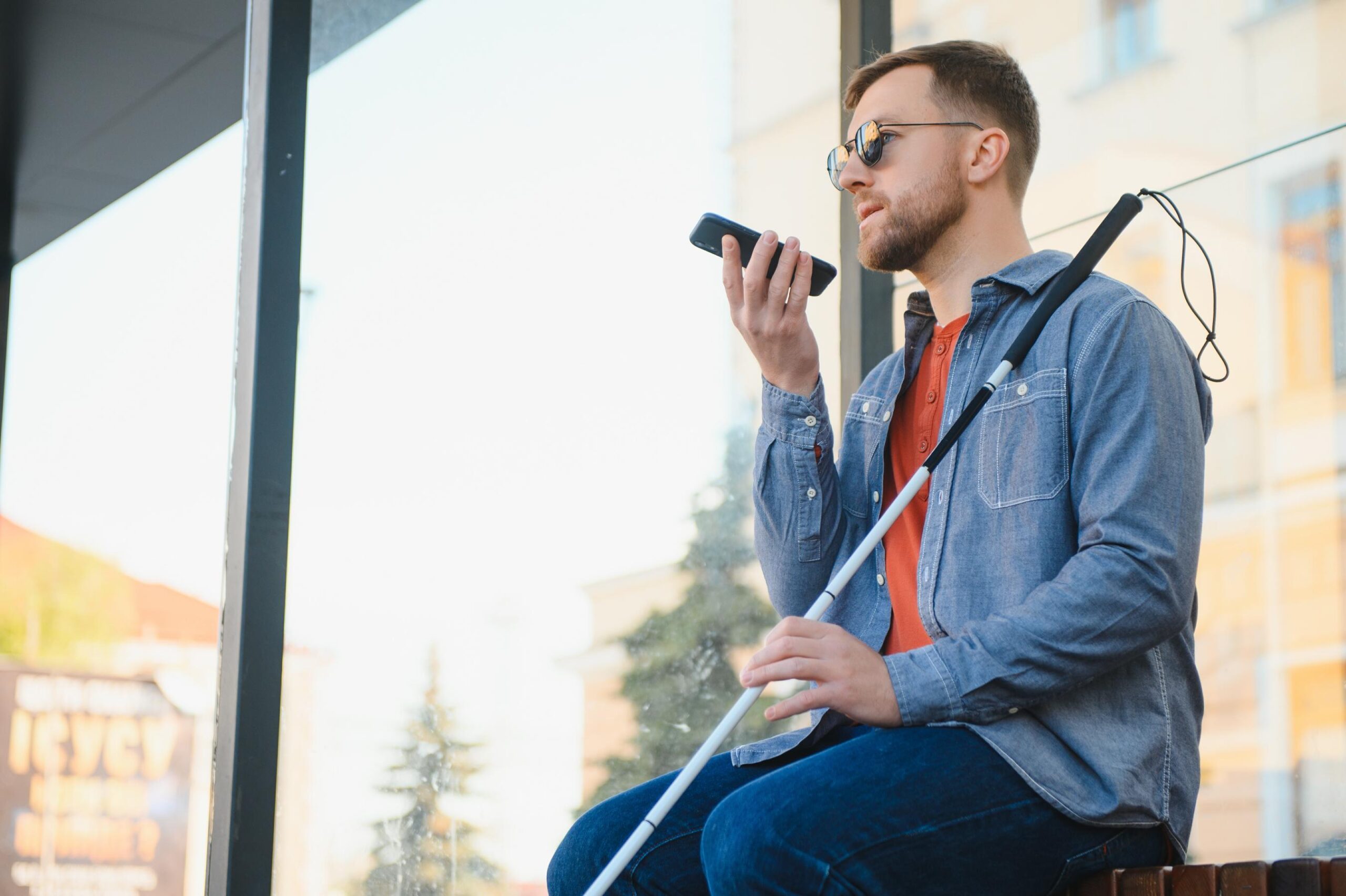While many people may think of digital accessibility as simply a matter of ethics, in reality, it is actually a legal obligation to make sure that websites are accessible to all users, regardless of their abilities, With the rise of internet usage and the increased reliance on online services such as apps, web accessibility has become even more critical than ever over the past several decades. Whether or not your company has heard of California’s Assembly Bill (AB) 1757, it is imperative to learn about and keep in mind moving forward as it aims to enforce stringent standards for online accessibility.
What Is AB 1757?
AB 1757, known as the “Accessibility: Internet Websites” bill, is a legislative proposal in California that seeks to enforce strict accessibility standards for websites. It’s designed to guarantee that all online platforms are accessible to individuals with disabilities, thereby aligning state law with the requirements of the Americans with Disabilities Act (ADA). If passed, this bill will mandate that all websites operating in California, or serving California residents, must be compliant with the Web Content Accessibility Guidelines (WCAG) 2.1, Level AA standards, which outline specific criteria for making digital content more accessible to individuals with visual, auditory, cognitive, and/or physical impairments.
Why Is AB 1757 Necessary?
Accessibility is a fundamental right, and in today’s society, many aspects of daily life are conducted online—from shopping and banking to accessing healthcare and education. A significant number of websites, however, remain inaccessible to users with disabilities, leaving them unable to fully engage with online services.
The need for AB 1757 stems from the increasing volume of complaints and lawsuits regarding inaccessible websites. As businesses and services shift online, those with disabilities have often found themselves excluded. In fact, lawsuits related to ADA website compliance have surged, creating an urgent demand for legal clarity and uniformity in digital accessibility standards. AB 1757 actually seeks to fill this gap by codifying WCAG 2.1 Level AA as the minimum standard for web accessibility in California.
A Brief History of AB 1757 and Its Legislative History
AB 1757 was introduced to the California State Legislature with the goal of protecting the rights of individuals with disabilities and ensuring equal access to digital spaces. The bill is currently progressing through the legislative process and is receiving significant attention from advocates of disability rights and the business community alike.
As of now, the bill has moved through various committees and awaits further review and potential amendments. While it is not yet law, its passage seems extremely likely to keep up with the mounting pressure to address online accessibility issues and the need to enforce consistent compliance standards across the state.
Existing California Digital Accessibility Requirements
It’s important to note that California has been a leader in disability rights, and existing state law there already mandates certain accessibility standards. The Unruh Civil Rights Act and the California Disabled Persons Act (CDPA) are meant to make sure that individuals with disabilities have the right to equal access to services, including those offered online.
However, these laws do not explicitly specify the technical standards for digital accessibility. AB 1757 seeks to bridge this gap by requiring compliance with WCAG 2.1 Level AA. This means that websites must be designed and developed in a way that makes them usable for individuals with a range of disabilities, including those who rely on assistive technologies like screen readers.
What Does It Mean to Be WCAG 2.1 Compliant?
WCAG 2.1 was developed by the World Wide Web Consortium (W3C) and sets the international standard for web accessibility. Level AA compliance guarantees that websites are accessible to the widest variety of people, including those with moderate to severe disabilities. Some of the key guidelines include:
- Text alternatives for non-text content like images and videos, so that people using screen readers can understand what is on the page.
- Adaptable content that can be presented in different ways (for example, simpler layouts) without losing meaning.
- Distinguishable elements, ensuring content is easy to see and hear, such as sufficient contrast between text and background colors.
- Keyboard accessibility, meaning that users can navigate the site without needing a mouse.
- Input assistance, such as clear labels or instructions for user inputs like forms.
These standards provide a better user experience for all visitors, not just those individuals with disabilities, which makes these websites more user-friendly and compliant with ADA web best practices.
Legal and Financial Implications of AB 1757
It’s not surprising to note that the passage of AB 1757 would have far-reaching legal and financial implications for businesses, especially those that are not currently compliant with ADA web standards. Once the bill becomes law, businesses will need to have immediate compliance with WCAG 2.1 Level AA or will face significant legal risks. The absence of a transition period makes this issue particularly urgent, as companies will have no grace period to update their websites.
Failure to comply with this new law could result in expensive lawsuits, fines, and damages. Moreover, the reputational harm of being non-compliant could deter customers, especially in a state like California, where social responsibility and inclusivity are even more highly valued. By taking proactive steps toward ADA web compliance, companies and organizations can avoid legal trouble and demonstrate a commitment to inclusivity.
The Role of Three29 in Helping Businesses Achieve Compliance
For businesses that are currently trying to navigate the complexities of ADA web compliance, or those who haven’t yet started, partnering with a knowledgeable and experienced agency like Three29 is critical. Our emphasis on a protection-first approach goes beyond simple compliance and helps websites to become truly accessible to everyone. We can help your business meet and maintain ADA Core Compliance by providing services such as:
- Accessibility Audits: Three29 scans your website each month, identifying areas that need remediation to stay compliant with the latest ADA guidelines.
- Comprehensive Manual Audits: While automated scans are helpful, they can miss nuanced accessibility issues. That’s why Three29 conducts a detailed manual audit, reviewing the code base of major page templates to help your site meet every standard in the WCAG 2.1 checklist.
- Manual Remediation: Automated scans can only catch so much, so Three29’s team of experts manually resolves the more intricate issues that can slip through the cracks of automated processes, so that complete ADA Website Compliance is always a priority.
- ADA Compliance Badge: Once your site is headed in the right direction toward compliance, you will receive an ADA Compliance Badge to showcase your efforts. This badge acts as a deterrent for predatory lawsuits, signaling that your business is aware of and actively working toward web accessibility.
- ADA Compliance Vault: All remediation work, both automated and manual, is documented in the ADA compliance vault, a tool offering proof that your company is consistently working to stay compliant. This documentation we provide is essential in case of any legal challenges, as it shows your ongoing commitment to accessibility.
Why Urgency Matters
With AB 1757 potentially becoming law soon and no transition period offered by the government, businesses need to act fast because the legal and financial risks of non-compliance are too significant to ignore. By working with an ADA Agency like our team at Three29, your company or organization can avoid these pitfalls while contributing to a more accessible internet for all users.
Contact Three29 to Get Started Today!
ADA Compliance is both a legal requirement and an essential part of building an inclusive online presence. By partnering with our experienced staff at Three29, you can protect your business from lawsuits, improve user experience, and demonstrate your commitment to making the web a more accessible space for everyone.
If you’re looking to ensure your website meets ADA Web Best Practices and remains compliant with the latest standards, contact us at Three29 today to learn more about how we can help you protect your brand, your business, and your customers. We can be reached at (916) 512-3290.




